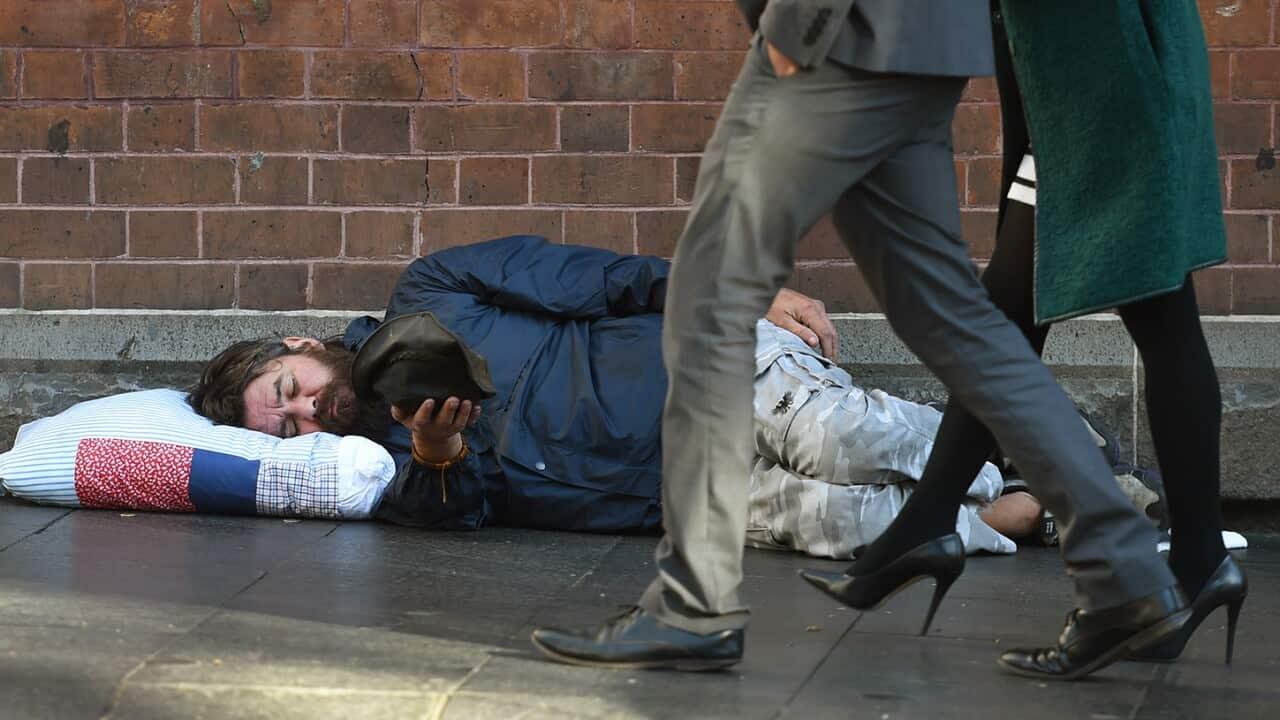It seems like every other week that new and ‘innovative’ homelessness solutions are announced: whether that be into accommodation, or
These ‘hip’ ideas from socially conscious architects and philanthropists certainly mean well, and have been well received by the public, but they are only temporary measures for a problem currently without real action.
Many homelessness experts agree – homeless people need safe and affordable housing, but a pop-up isn’t the answer.
It’s not a temporary problem. It’s a long-term problem of not being able to afford housing.
Homeless people deserve more than ‘just a roof’
According to the Australian Institutes of Health and Welfare 2016 Housing Assistance Report, and those at the top of the list will still have to wait eight-to-nine months for a spot. Due to this shortage and lack of affordable rentals, homelessness is on the rise and so are quick temporary accommodation fixes.
Jenny Smith, CEO of says these ideas “mean well” but the problem is that the type of homelessness people are experiencing isn’t just a once off, short-lived experience but people are waiting and waiting, often for years.
“It’s not a temporary problem,” explains Smith. “It’s a long-term problem of not being able to afford housing.”
Even if it’s planned for a short-stint, a pop-up home isn’t an easy feat she says. “People who go in [to temporary accommodation services], may have life challenges, haven’t been assessed or vetted and there can be safety and security problems.
“If you are a woman with children escaping family violence, and someone gives you a tent in the car park, with a whole lot of other people there who are homeless, how do you protect those children and that vulnerable woman from the broader community?”
The most difficult thing is making sure that support services – such as provision of food, health, counselling, and drug and alcohol services – are properly integrated.
City of Melbourne Lord Mayor, Robert Doyle says that creating temporary accommodation from empty storage containers is not just about the roof over their heads, but making sure the support is there.
“You can’t say to 50 homeless people, ‘here’s a room with a shower, see you later’," says Doyle. "The most difficult thing is making sure that support services – such as provision of food, health, counselling, and drug and alcohol services – are properly integrated.”
Dr Cameron Parsell researcher at the University of Queensland's Institute for Science Research says there is also another problem with the ‘anything will do kind of housing’; they disregard a homeless person’s right to a normal and safe home.
“Providing temporary and make-shift accommodation to people who are homeless is predicated on an assumption that they are lesser than ‘us’, and that they are so deprived anything will do,” says Dr Parsell.
The answer isn’t about innovation; we just need more affordable housing
The tragedy of homelessness that we see on the streets is a result of poor leadership and will continue unless governments make a stand and change polices, adds Smith of Homelessness Australia.
“It’s about recognising that negative gearing and capital gains tax is making it impossible for young people to be able to afford a home, which means they are renting down," she says, "and renting the properties that people on low-incomes would be renting."
“… State governments need to be courageous and stand up to property developers and introduce inclusion rezoning and make sure every time we do a housing development, or redevelopment we have a proportion of low-cost houses available.”
Providing temporary and make-shift accommodation to people who are homeless is predicated on an assumption that they are lesser than ‘us’, and that they are so deprived anything will do.
Smith admits this is an unpopular solution and one that seems too hard.
Parsell agrees that the best solution for homelessness is proper housing, but believes this won’t happen unless we stop treating the homeless as the ‘other’:
“People who are homeless, just like all of us, need decent, safe, and affordable housing.
"People who are homeless have a right to normal housing, and indeed despite myths, they have an aspiration for the same basic standards of living as anyone else.”
, a new three-part documentary series, will explore the experience of homelessness when it debuts on SBS on Tuesday 27, Wednesday 28 and Thursday 29 June at 8.30pm. Each show will be available to view on after broadcast.
If this article has raised issues for you and you would like to talk to someone, please on 13 11 14 or visit their website by . For information about services from St Vincent De Paul, or for services offered by Salvation Army,










